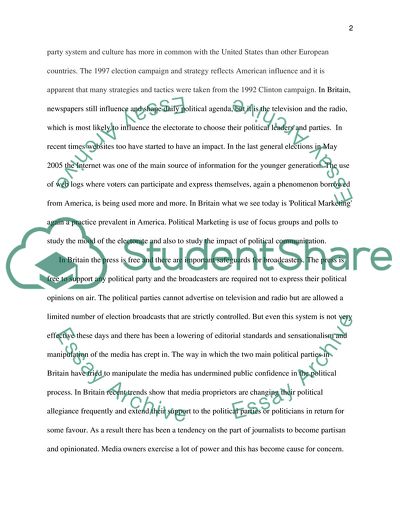Cite this document
(Americanisation of Media Campaigns by British Political Parties Coursework, n.d.)
Americanisation of Media Campaigns by British Political Parties Coursework. https://studentshare.org/politics/1707106-analyseassess-and-explain-how-the-british-political-parties-have-americanised-their-media-campaigns-in-modern-general-elections
Americanisation of Media Campaigns by British Political Parties Coursework. https://studentshare.org/politics/1707106-analyseassess-and-explain-how-the-british-political-parties-have-americanised-their-media-campaigns-in-modern-general-elections
(Americanisation of Media Campaigns by British Political Parties Coursework)
Americanisation of Media Campaigns by British Political Parties Coursework. https://studentshare.org/politics/1707106-analyseassess-and-explain-how-the-british-political-parties-have-americanised-their-media-campaigns-in-modern-general-elections.
Americanisation of Media Campaigns by British Political Parties Coursework. https://studentshare.org/politics/1707106-analyseassess-and-explain-how-the-british-political-parties-have-americanised-their-media-campaigns-in-modern-general-elections.
“Americanisation of Media Campaigns by British Political Parties Coursework”. https://studentshare.org/politics/1707106-analyseassess-and-explain-how-the-british-political-parties-have-americanised-their-media-campaigns-in-modern-general-elections.


